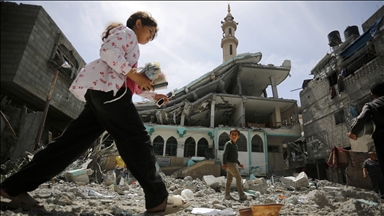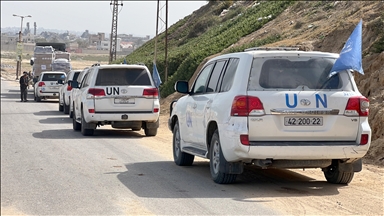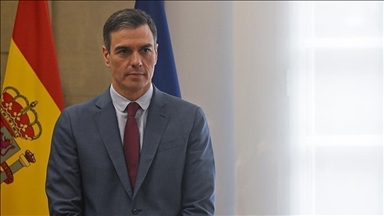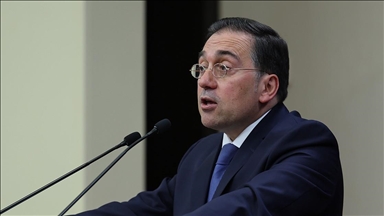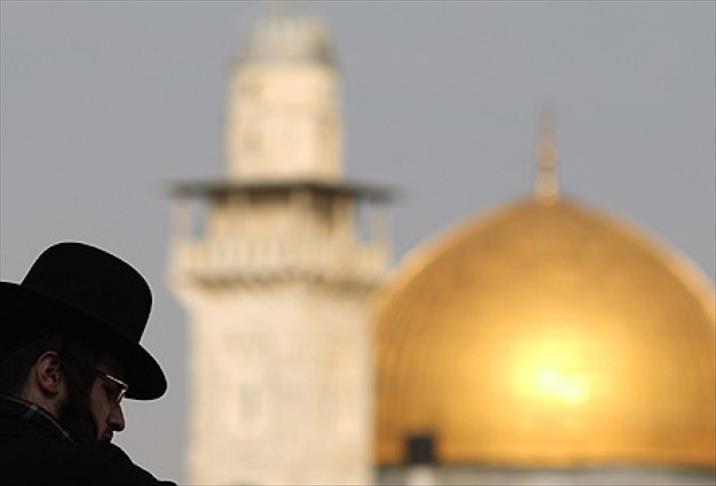
By Mustafa Caglayan
NEW YORK
Once again, the United Nations is set to become the frontline force in efforts to inject life to the moribund Mideast peace process between Israelis and Palestinians.
The New York-based body is looking for means to spur new momentum that will lay out a solid framework for negotiations, including parameters to achieve a continuation of talks, the latest round of which collapsed last year.
As the parties do not appear ready to recommence negotiations, the UN's new Middle East envoy Nickolay Mladenov said Tuesday that UN officials would soon engage the Israeli government to explore "realistic options" for the resumption of talks aimed at reaching a two-state solution.
A France-drafted Security Council resolution presenting a new framework for direct talks has also been on hold since late March as the new Israeli government was formed.
It is unknown whether the U.S., which has traditionally vetoed any resolution that was opposed by Israel, would agree to the proposal even if it moved forward, but experts believe Washington might be forced to frame a resolution that it can agree to amid dwindling global public support for Israel.
"In the absence of any agreement, in the absence of direct negotiations between Israelis and Palestinians brokered by the United States, somebody has to put on the table a political horizon," Edward P. Djerejian, director of Rice University's Baker Institute for Public Policy, told Anadolu Agency.
"Somehow or other, there has to be parameters of a final solution put somewhere that the parties can refer to when negotiations can start," said the former U.S. ambassador to Israel and Syria.
The U.S.-brokered direct Palestinian-Israeli talks came to a halt last April after Israel failed to honor an earlier promise to release a number of Palestinian prisoners.
Since then, an Arab-backed draft resolution that called for an end to the Israeli occupation of Palestinian territories within three years was rejected last December by the UN Security Council, as it failed to secure the minimum of nine votes.
The rejection prompted Palestinians to become a party to the International Criminal Court in the face of strong opposition from the U.S. and Israel, a move that can give the court a mandate dating back to June 13, 2014, to investigate and prosecute alleged war crimes committed on Palestinian territory.
The prospects for a return to talks suffered another blow when during the last days of his election campaign, Israeli Prime Minister Benjamin Netanyahu said he would ditch the UN-proposed two-state model altogether if he were to be re-elected.
The UN-proposed solution envisages the creation of an independent Palestinian state within pre-1967 borders, alongside Israel.
"Fundamentally, in the absence of any progress now on the ground ... the resort to the United Nations and the UN Security Council resolution is a real option," Djerejian said.
He said a UN resolution would not guarantee an agreement, "but what it would do is to say that there is some hope for the future once the parties can get down to negotiating".
He acknowledged that a resolution the U.S. would also agree to could end up "just being a form, not substance", but having a political horizon on the table could still prove an important step if the parties restarted negotiations.
"Sometimes, in diplomacy and politics, symbols are important," he added.
Djerejian said the UN action is the most realistic option as long as "the Israelis continue to be led by a narrow right wing government".
He said, however, there is a slight possibility for the the U.S. to play a direct role in brokering an agreement if the Netanyahu-led Cabinet stumbles and is forced to expand into a national unity government.
Anadolu Agency website contains only a portion of the news stories offered to subscribers in the AA News Broadcasting System (HAS), and in summarized form. Please contact us for subscription options.


